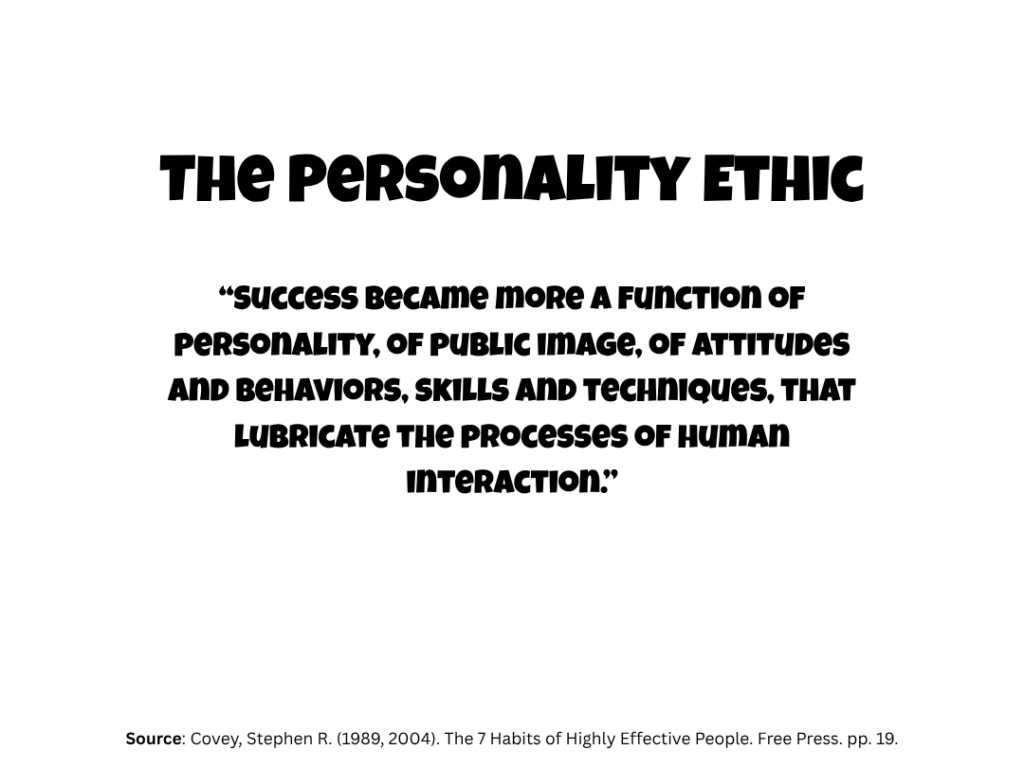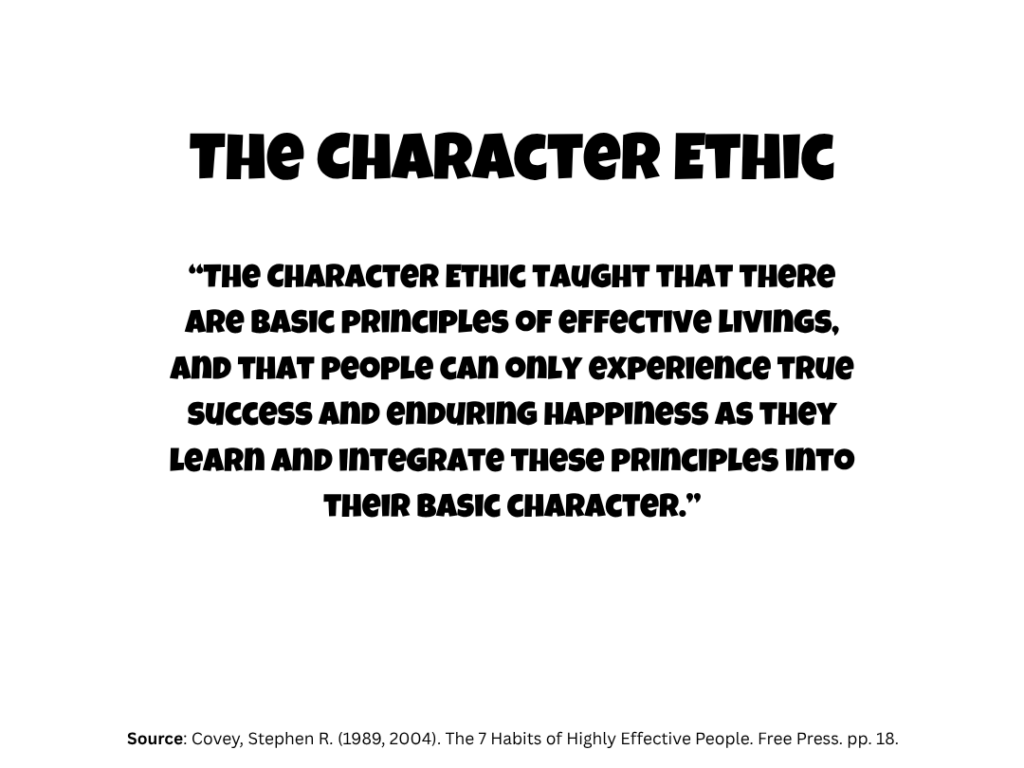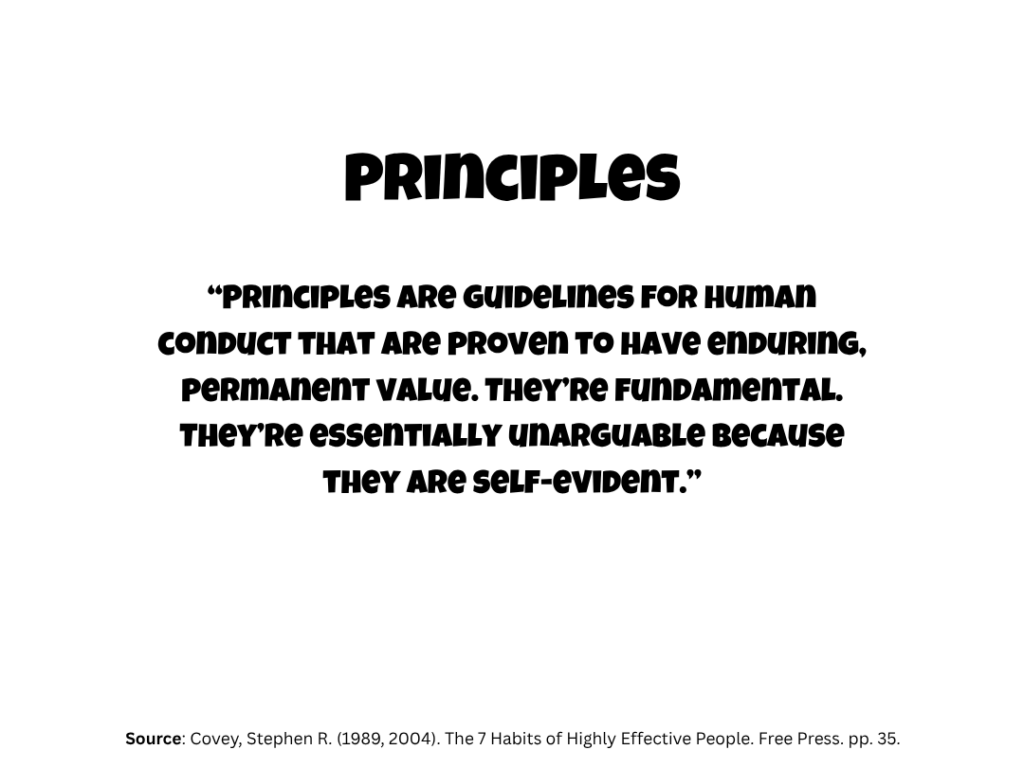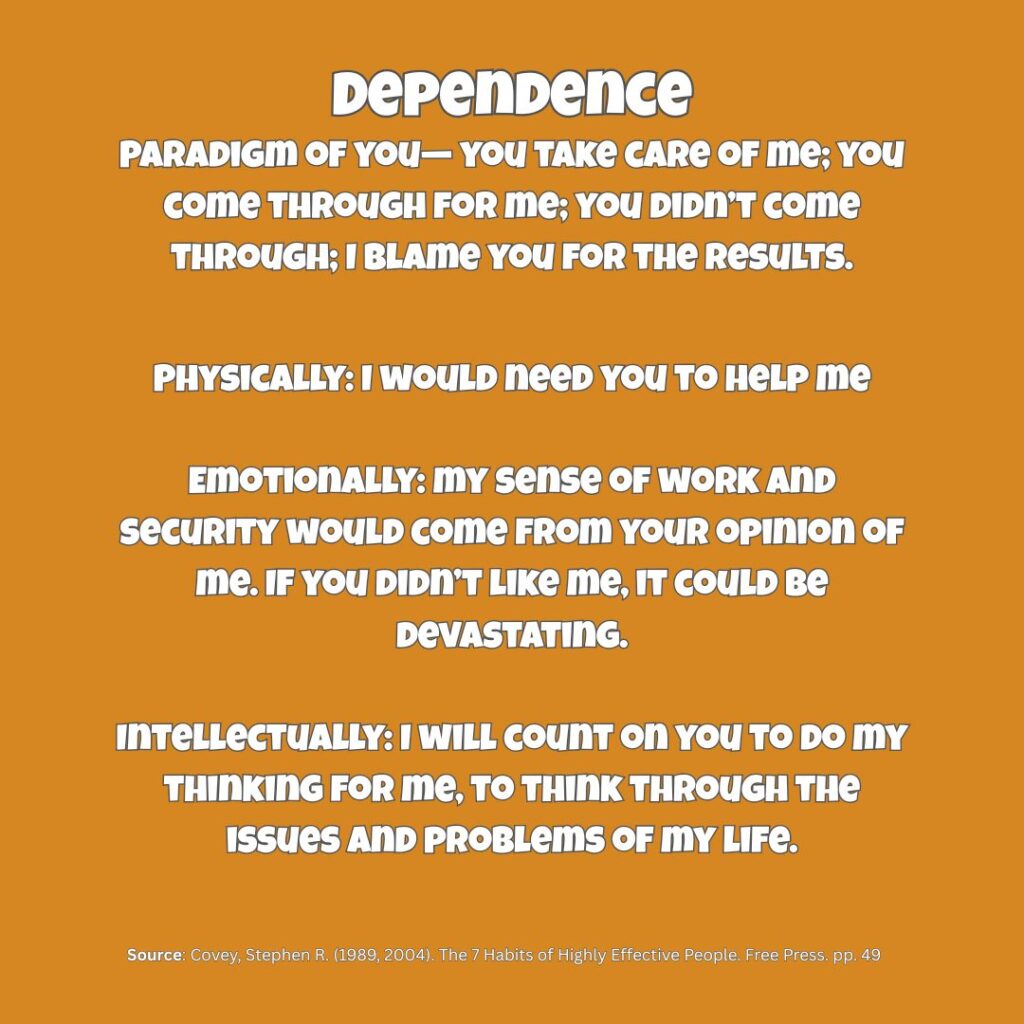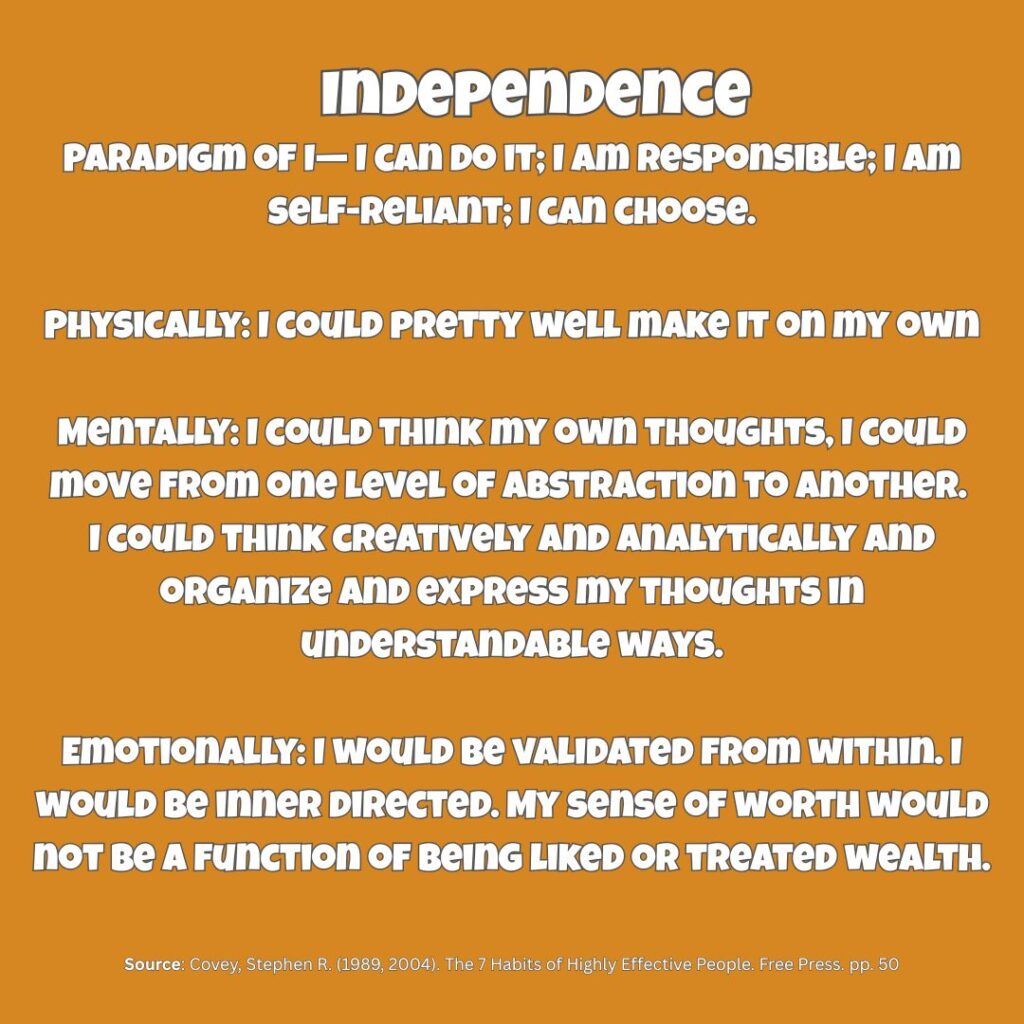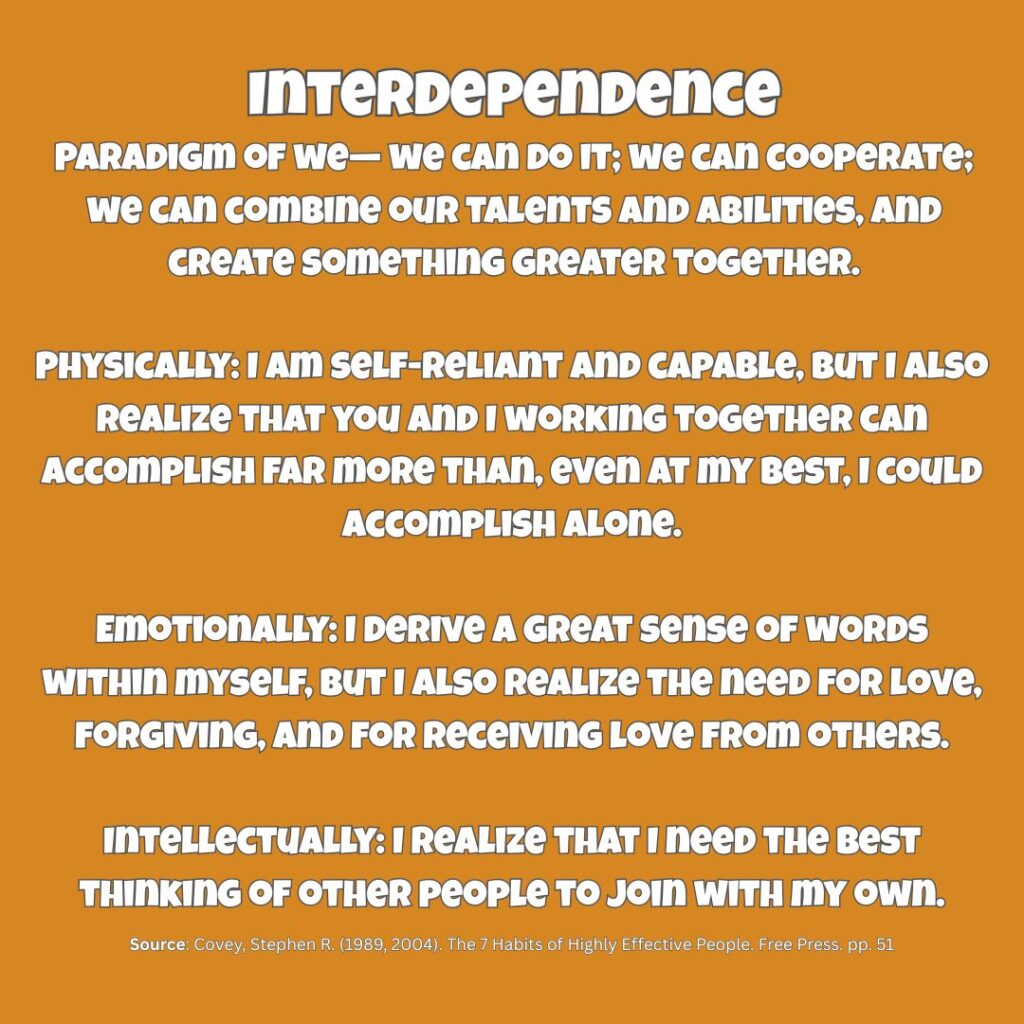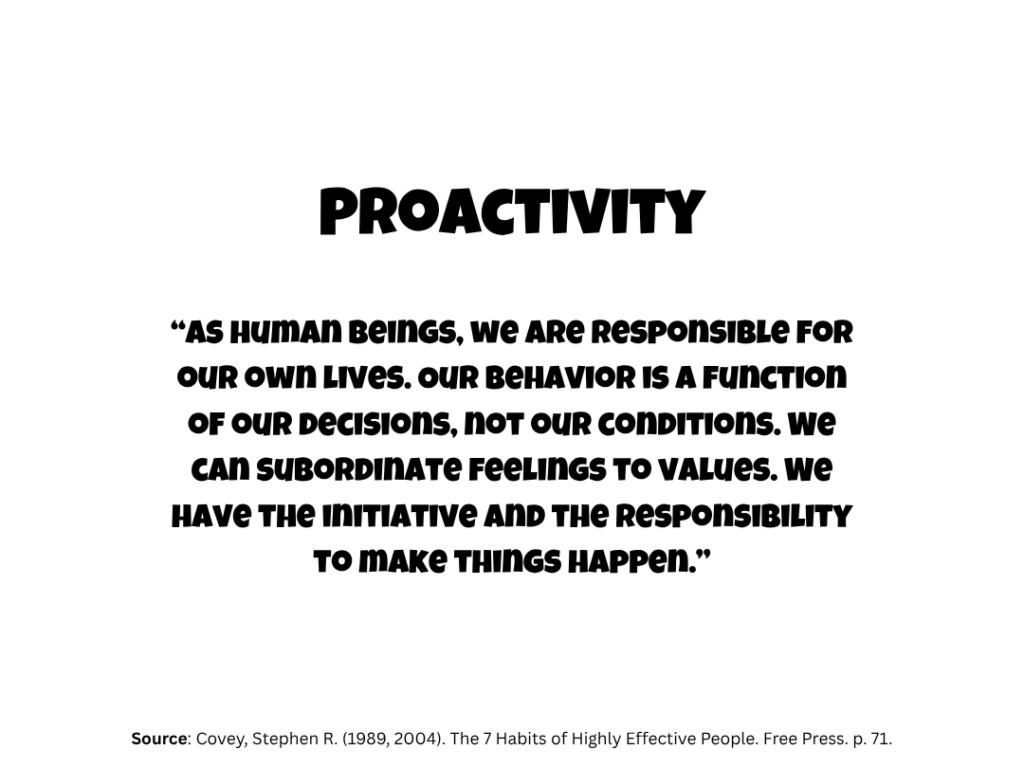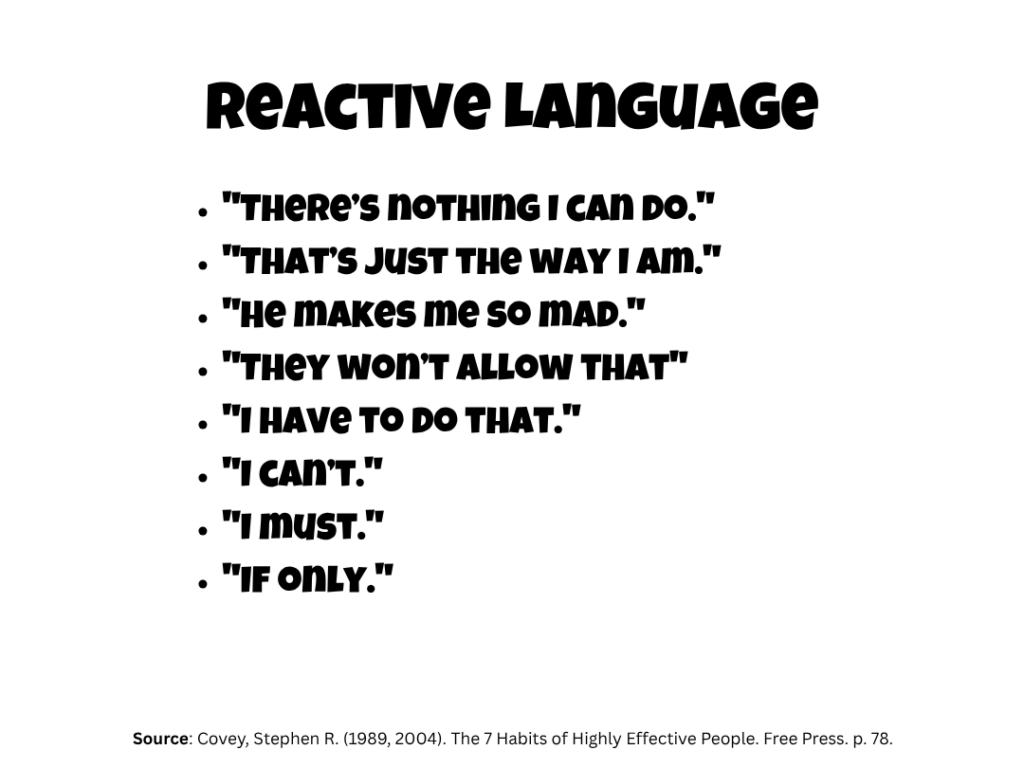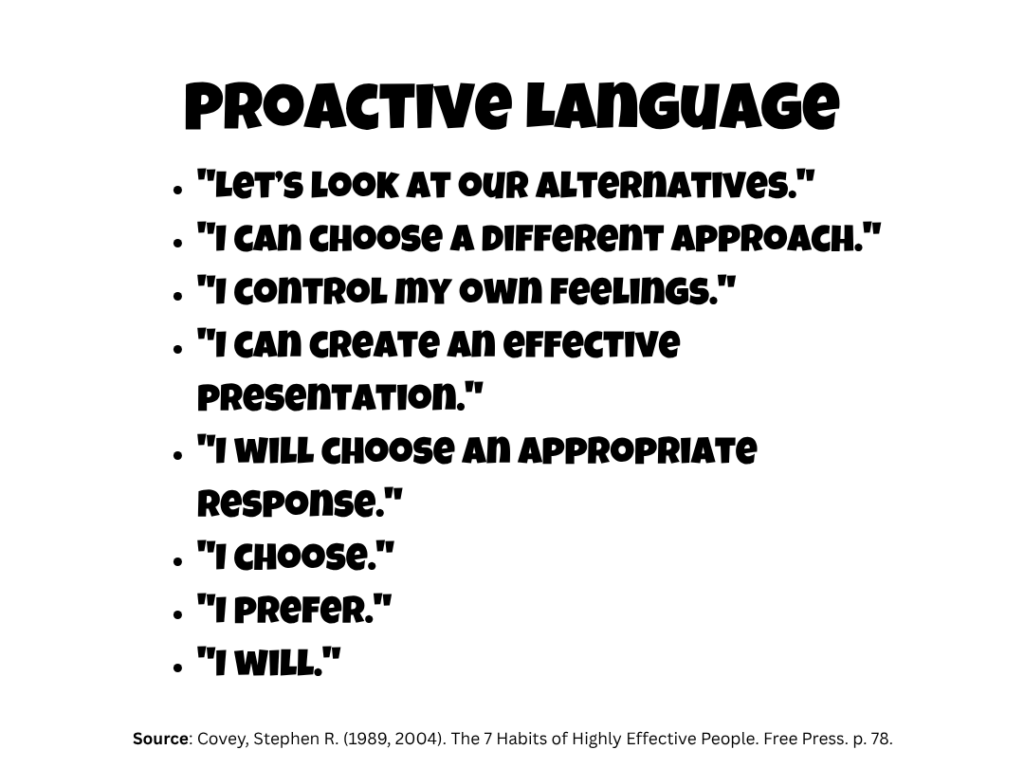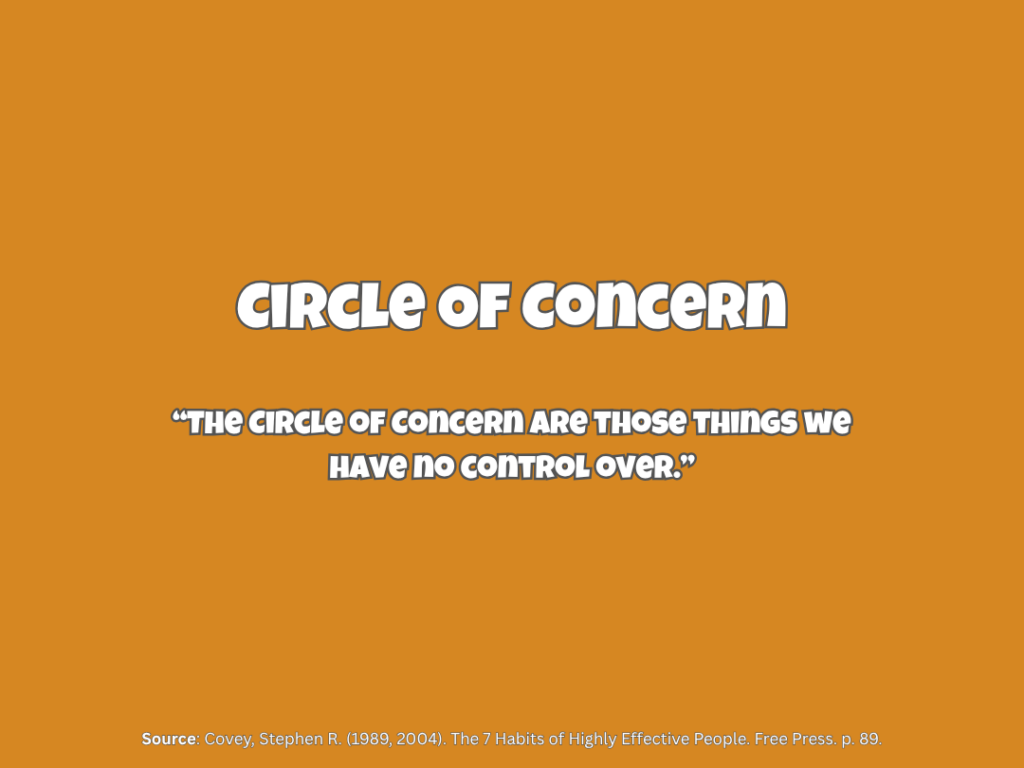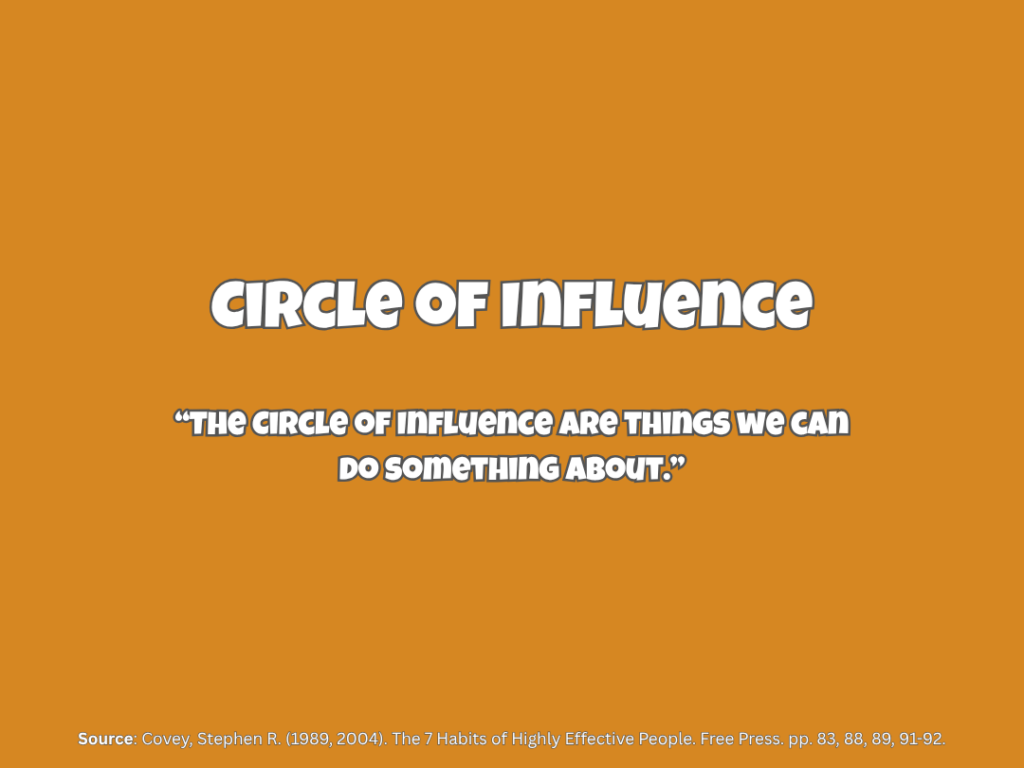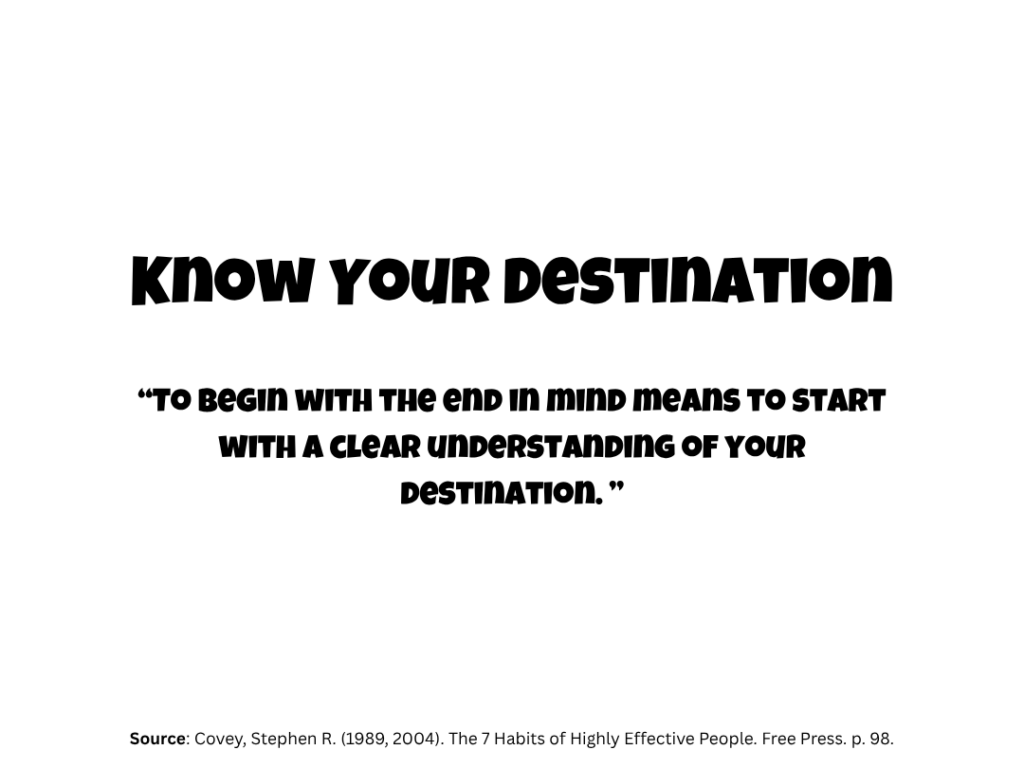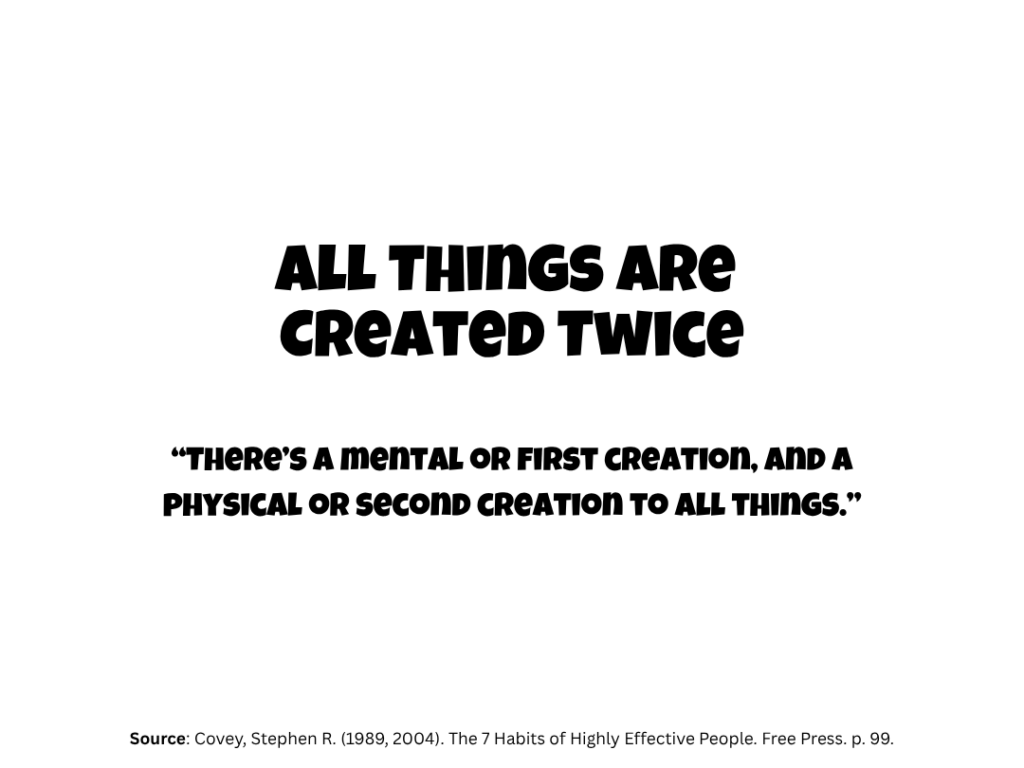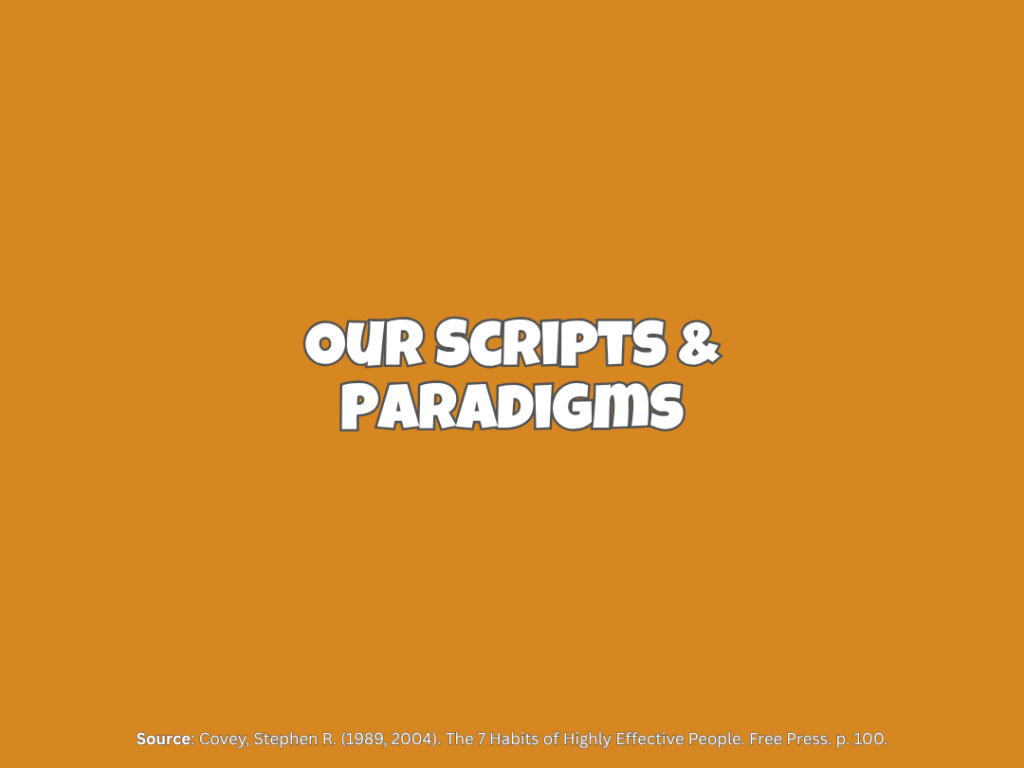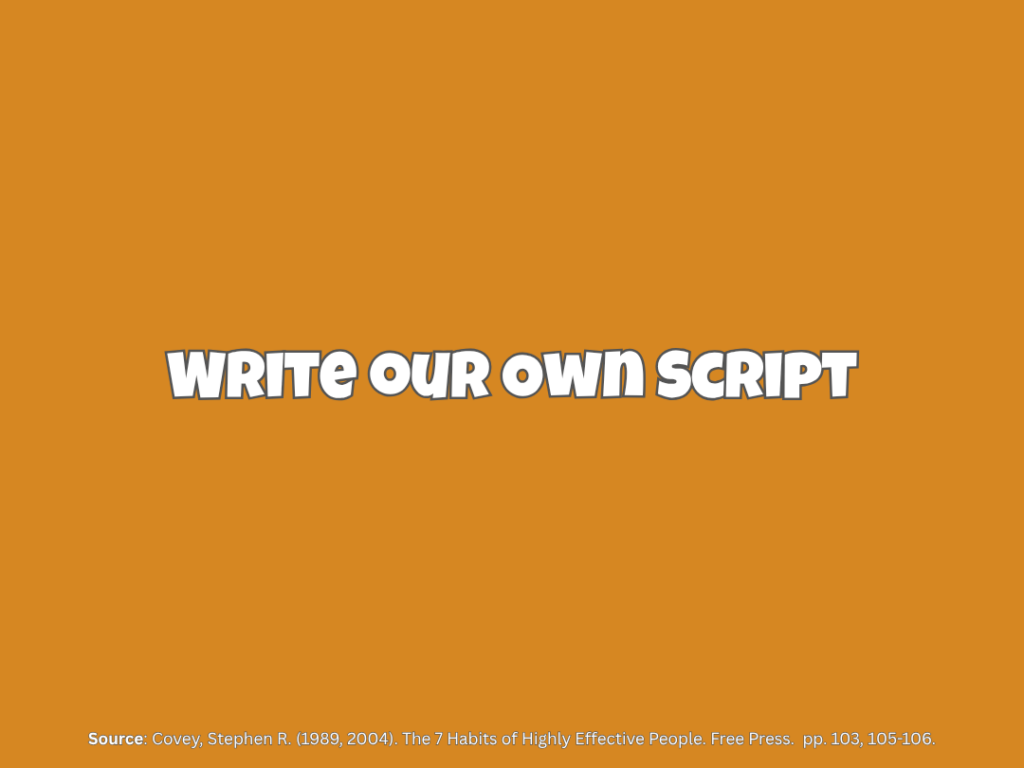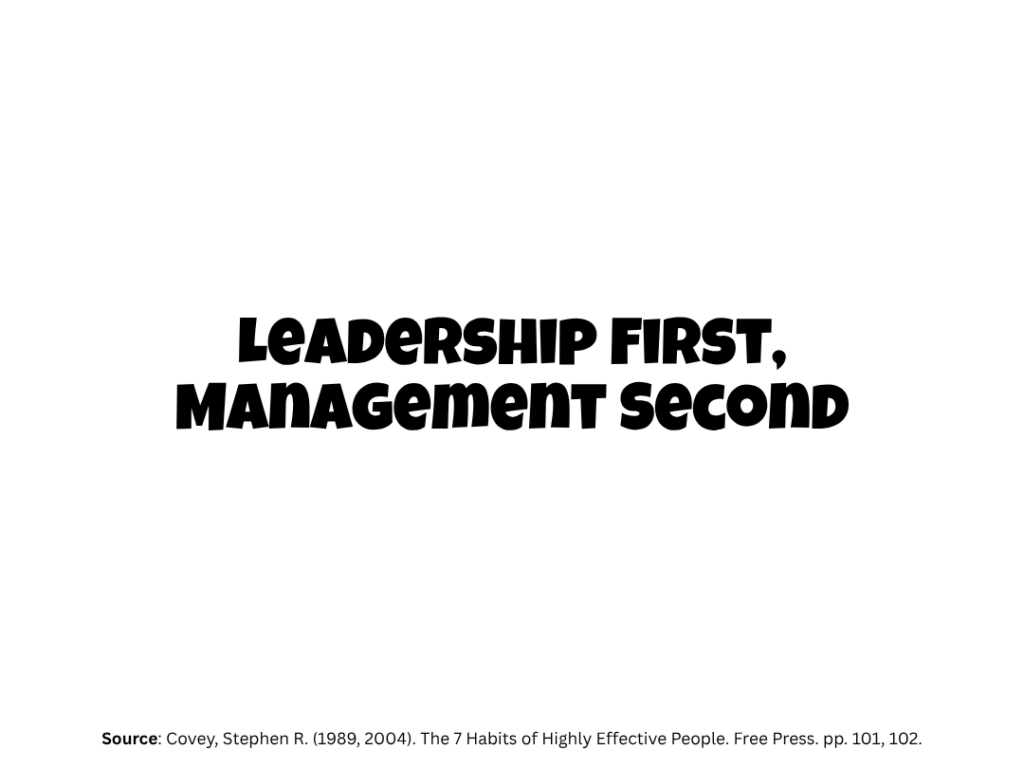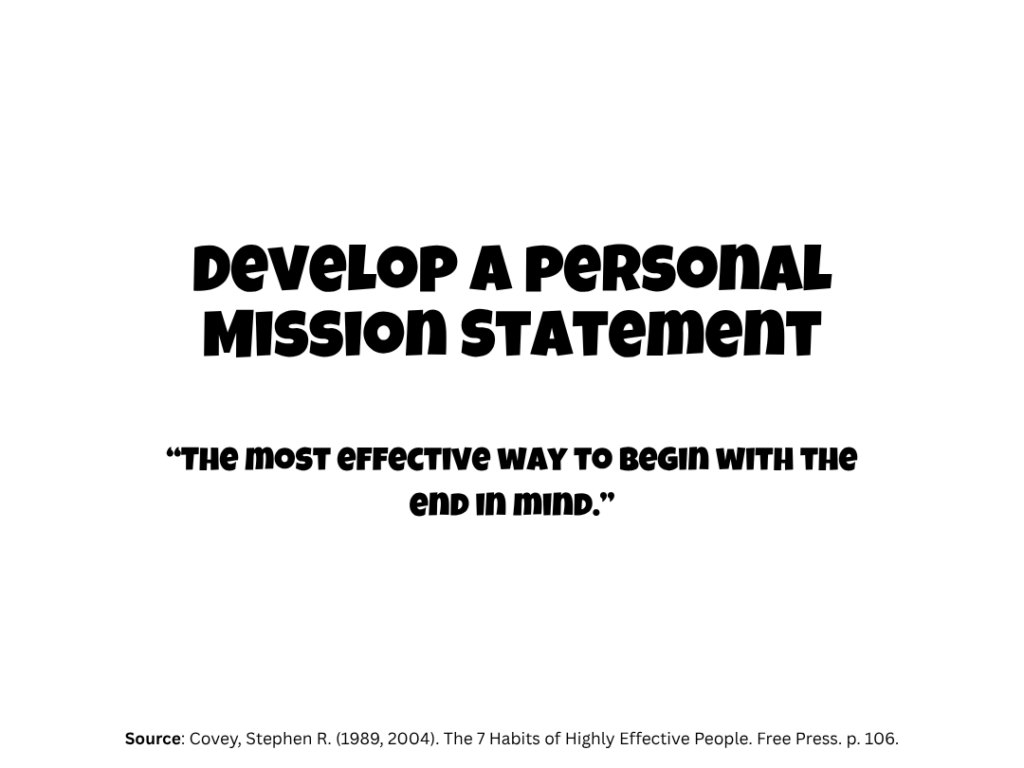Albert Einstein observed, “The significant problems we face cannot be solved at the same level of thinking we were at when we created them.”
As we look around us and within us and recognize the problems created as we live and interact within the Personality Ethic, we begin to realize that these are deep, fundamental problems that cannot be solved on the superficial level on which they were created.
We need a new level, a deeper level of thinking – a paradigm based on the principles that accurately describe the territory of effective human being and interacting – to solve these deep concerns.
This new level of thinking is what Seven Habits of Highly Effective People is about. It’s a principle-centered, character-based, “inside-out” approach to personal and interpersonal effectiveness.
“Inside-out” means to start first with self; even more fundamentally, to start with the most inside part of self—with your paradigms, your character, and your motives.
It says if you want to have a happy marriage, be the kind of person who generates positive energy and sidesteps negative energy rather than empowering it. If you want a more pleasant, cooperative teenager, be a more understanding, empathetic, consistent, loving parent. If you want to have more freedom, more latitude in your job, be a more responsible, more helpful, a more contributing employee. If you want to be trusted, be trustworthy. If you want the secondary greatness of recognized talent, focus first on primary greatness of character.
The inside-out approach says that private victories precede public victories, that making and keeping promises to ourselves precedes making and keeping promises to others. It says it is futile to put personality ahead of character, to try to improve relationships with others before improving ourselves.
Covey, Stephen R. (1989, 2004). The 7 Habits of Highly Effective People. Free Press. pp. 42-43.
According to Albert Einstein, we cannot solve important problems unless we change our thinking.
When we live by the personality ethic, we may start to notice that we’re unable to solve our problems. We are unable to solve these problems with the way of thinking that caused the problems. We need a new, different way of thinking to solve our problems.
The 7 Habits of Highly Effective People is based on principles and character. It’s living from the inside out. It’s a new and different way of thinking. “Inside-out” means to start with self. We begin with our character, motives, and the way we see the world.
It says that we need to be the change we want to see whether it’s in a person, in a situation, or in the world. If we want a happy relationship, we need to be the type of person who is positive to diffuse negative energy. If you want a more pleasant, cooperative teenager, we need to be a more loving, understanding, patient parent. If you want to be trusted, we need to be trustworthy.
The “inside-out” approach has us managing ourselves successfully before attempting to manage others. It’s putting our character before our personality. It’s improving our relationship with ourselves before attempting to improve relationships with others.
“Inside-out” means living by principles, examining the paradigms that shape who we are, taking responsibility for those paradigms that shape how we see the world so that we reshape those paradigms to suit who we are today and what we aim to be in the future — to no longer live according to those paradigms scripted in our distant past.
It is knowing that we are the co-creators of our lives and that everything is created twice. First, in thought. Second, in form. We need to see what we want to create for ourselves and bring it into form by making it happen through our actions. This is an over-simplified explanation of “inside-out” which is why I’ve included quotes of Stephen Covey’s exact wording so that his thoughts are not diluted in my translation of them.
Read about The Personality Ethic and The Character Ethic and how they differ. Take a look at the Principles presented. What principles are important to you? Which ones do you live by and which ones would you like to add?
The Seven Habits Paradigms has us transitioning from dependence to independence to interdependence. The Paradigm of YOU is dependence. It’s relying heavily on others. The Paradigm of I is independence. It’s relying on ourselves. The Paradigm of WE is interdependence. It’s the independent collaborating with others.
Habit 1: Be Proactive
Habit 1 says, “You’re the creator. You are in charge.” It’s based on the four unique human endowments of imagination, conscience, independent will, and, particularly, self-awareness. It empowers you to say, “That’s an unhealthy program I’ve been given from my childhood, from my social mirror. I don’t like that ineffective script. I can change.”
In addition to self-awareness, imagination, and conscience, it is the fourth human endowment – independent will – that really makes effective self-management possible. It is the ability to make decisions and choices and to act in accordance with them. It is the ability to act rather than to be acted upon, to proactively carry out the program we have developed through the other three endowments. The degree to which we have developed, our independent will in our everyday lives is measured by our personal integrity. Integrity is, fundamentally, the value we place on ourselves. It’s our ability to make and keep commitments to ourselves, to “walk our talk.” It’s honor with self, a fundamental part of the Character Ethic, the essence of proactive growth
Source: Covey, Stephen R. (1989, 2004). The 7 Habits of Highly Effective People. Free Press, pp. 146, 147-148.
Being proactive is carefully choosing your reaction to what’s happening to you and around you. It’s taking responsibility for what you have control over and letting go of what you have no control over. Our Circle of Concern is the things we are concerned about but have no control over. Our Circle of Influence are the things we have control over. Being proactive is flooding our Circle of Influence.
Habit 2: Begin With the End in Mind
Habit 2 is the first or mental creation. It’s based on imagination – the ability to envision, to see the potential, to create with our minds what we cannot at present see with our eyes; and conscience – the ability to detect our own uniqueness and the personal, moral, and ethical guidelines within which we can most happily fulfill it. It’s the deep contact with our basic paradigms and values and the vision of what we can become.
Habit 2…. requires independent will, the power to do something when you don’t want to do it, to be a function of your values rather than a function of the impulse or desire of any given moment. It’s the power to act with integrity to your proactive first creation.
Source: Covey, Stephen R. (1989, 2004). The 7 Habits of Highly Effective People. Free Press, pp. 146-147, 149.
We need to know where we want to go. What is our objective? What do we want to achieve? Once we know our destination, we want to understand that things are created two times. First, in our mind. Second, in our physical world. We make a detailed plan and implement that plan bringing our idea into physical form. If we were building a wooden dining table with eight cushioned chairs, we’d devise a blueprint of each piece prior to visiting the lumberyard.
Beginning with the end mind also involves knowing that we have programs installed in us that determine how we see the world. We also have the power to rewrite those programs to align with what we wish to accomplish.
We take personal leadership in determining those things that move us in the direction of what we want to achieve — similar to leadership in an organization that makes sure things are done that move the organization in the right direction. Personal management is making sure we do the chosen things correctly.
A part of this reprogramming is writing a personal mission statement. As every company and organization has a mission statement, so too should each individual have a declaration of their life’s mission.
Habit 3: Put First Things First
Habit 3, then, is the second creation, the physical creation. It’s the fulfillment, the actualization, the natural emergence of Habits 1 and 2. It’s the exercise of independent will toward becoming principle-centered. It’s the day -in, day-out, moment-by-moment doing it.
But with that foundation, you can become principle-centered, day-in and day-out, moment-by-moment, by living Habit 3–by practicing effective self-management.
Effective management is putting first things first. While leadership decides what “first things” are, it is management that puts them first, day-by-day, moment-by-moment. Management is discipline, carrying it out
Discipline derives from disciple – disciple to a philosophy, disciple to a set of principles, disciple to a set of values, disciple to an overriding purpose, to a subordinate goal or a person who represents that goal.
Source: Covey, Stephen R. (1989, 2004). The 7 Habits of Highly Effective People. Free Press, pp. 147, 148.
Habit 3, putting first things first, involves utilizing The Time Management Matrix that organizes tasks and events by their level of importance and urgency. “Importance has to do with results. If something is important, it contributes to your mission, your values, your high priority goals.” (151) “Urgent means it requires immediate attention.” (150)
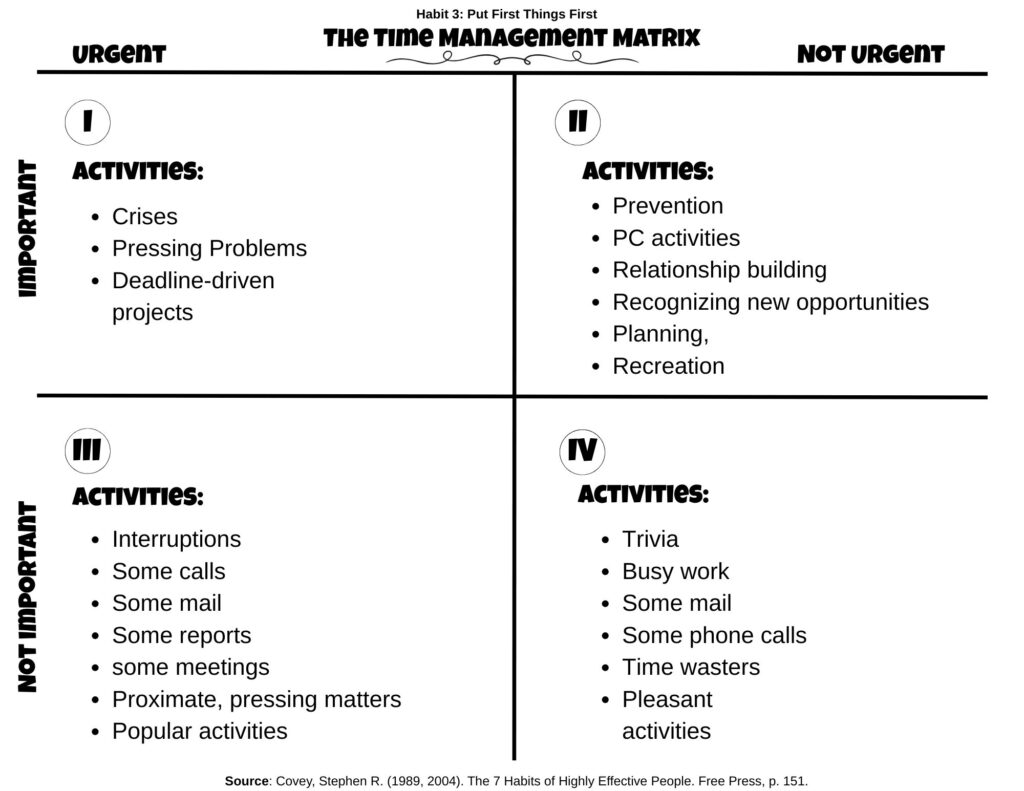
Referring to The Time Management Matrix, there are four categories:
- Urgent / Important
- Not Urgent / Important
- Not Important / Urgent
- Not Important / Not Urgent
The first category are the emergencies. The third and fourth categories are not important, both urgent and not urgent. For best personal management, we want to spend our time in the second category, the not urgent and important items. We can do this by utilizing The Quadrant II Tool. We plan each week, determining our goals within our different roles and plot each goal on the week’s calendar, hour-by-hour.
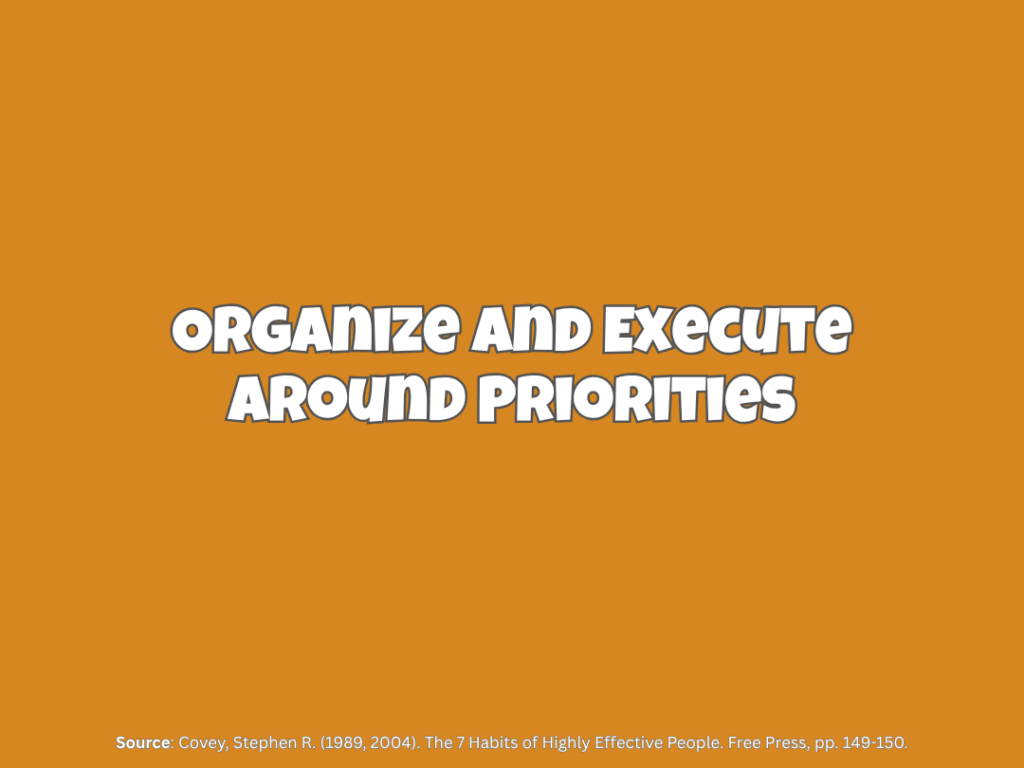
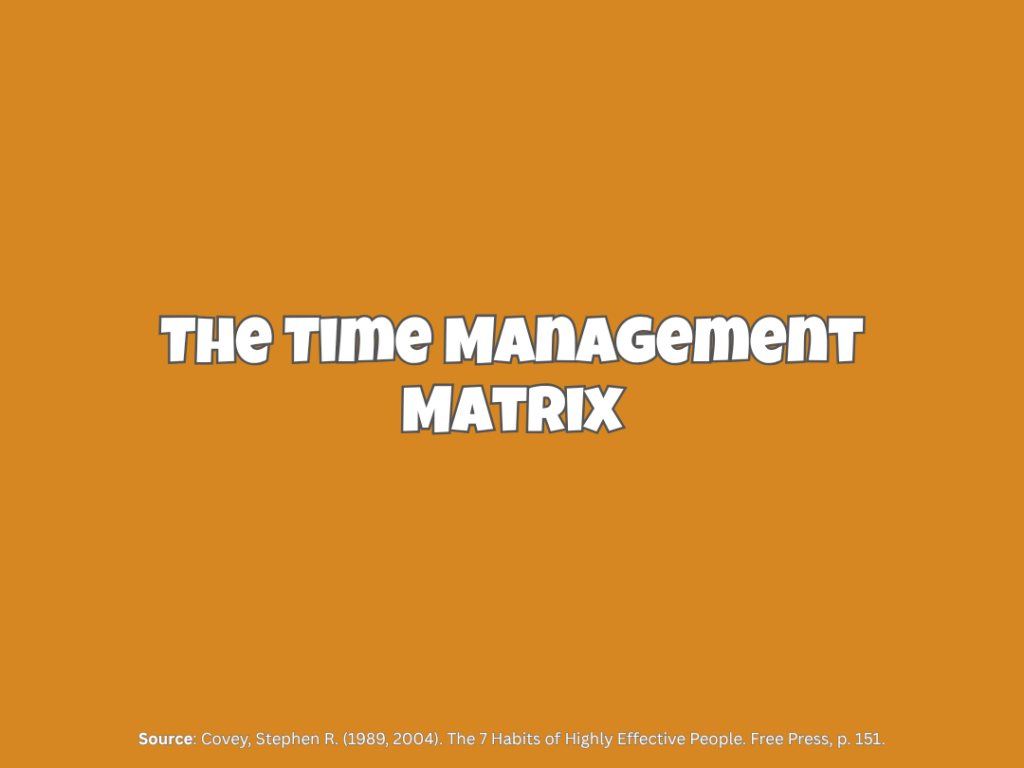
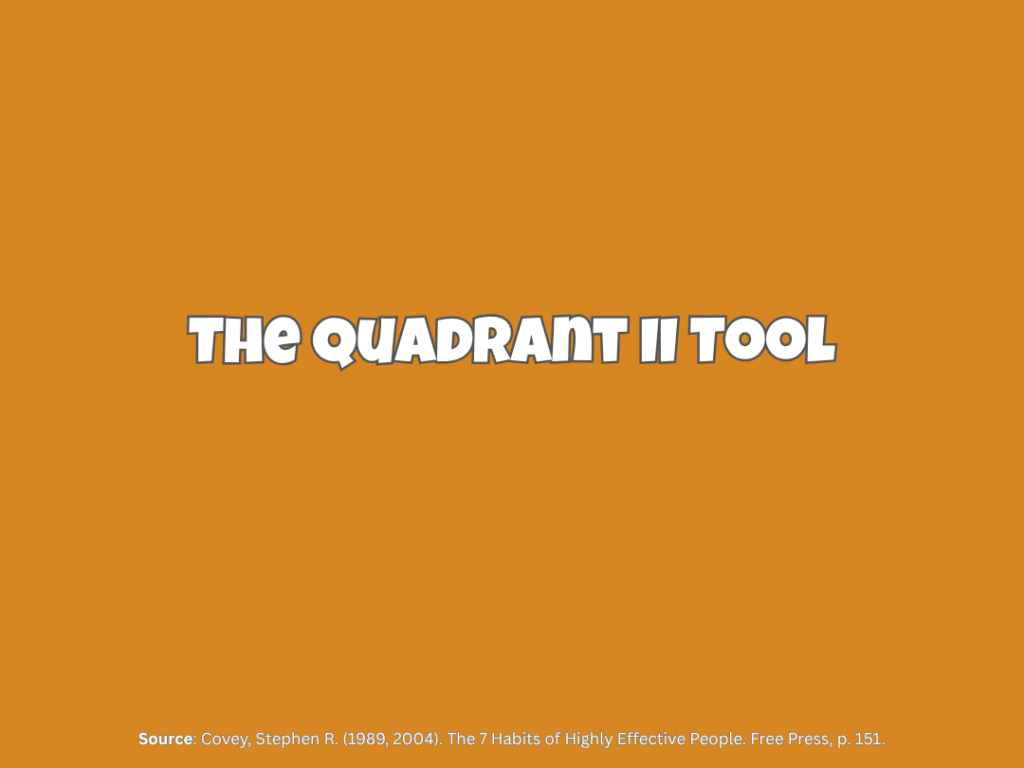

Contact Us
Enter your name, email and brief message in the form below.

